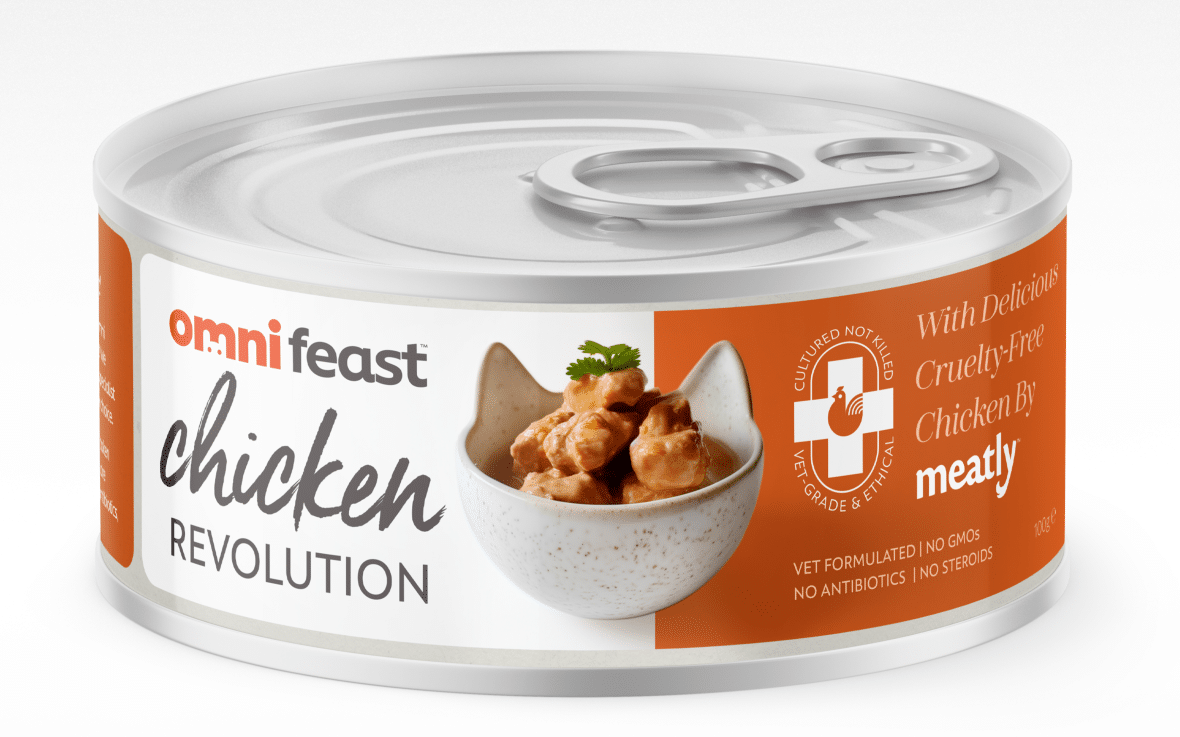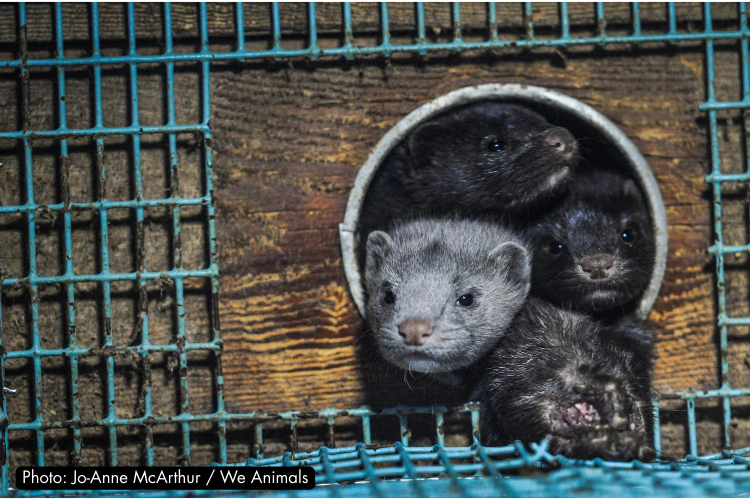Cultivated pet food is here! UK-based company gets ‘world’s first’ approval to sell lab-grown meat for pets
The landmark move could help usher in a more sustainable, healthy and animal-free future for the global pet food industry.
Credit: Meatly
In a landmark moment for the cultivated meat industry, a company in the UK has become the first in the world to be approved to sell cultivated pet food.
Alternative meat company Meatly announced today it has successfully received regulatory approval from the UK’s food industry regulators. The authorisation comes after extensive safety testing by the country’s Food Standards Agency and the Animal and Plant Health Agency, who concluded that Meatly’s cultivated chicken for pet food complies with all necessary regulations.
The ruling means the company can now legally sell its cultivated pet food in the UK.
Also known as cellular agriculture or lab-grown meat, cultivated meat production creates ‘real’ meat, but it is cultivated - grown - directly from animal cells, rather than a farmed animal. The innovative process is predicted to become a key solution in creating a more sustainable and efficient global food system by producing meat that sidesteps the environmental and ethical issues typically associated with the current animal agriculture industry.
Meatly says it will launch samples of its commercially available pet food later this year, and in doing so become the first-ever cultivated pet food sold.
However, its primary focus will remain on cost reduction, and continuing work on scaling production so that it can reach industrial volumes within the next three years.
A previous sample of Meatly’s cultivated pet food. Credit: Meatly
“Pet parents are crying out for a better way to feed their cats and dogs meat – we’re so excited to meet this demand”, Owen Ensor, Meatly CEO said in a statement. “We can now continue our mission to give consumers an easy choice – ensuring we can feed our beloved pets the real meat they need and crave, in a way that is kinder to our planet and other animals.”
The growing pet food industry is often overlooked for its role in meat consumption. Estimates show that around 10 percent of meat produced ends up in pet food, making it worthwhile to include the sector when looking at ways to lower the world’s unsustainable demand for meat.
Cultivated meat - the road to global approval
The UK’s move means that Meatly is the first company in Europe to be approved to sell cultivated meat products. As an emerging food and industry, cultivated meat companies must first receive regulatory approval to mark them as safe for human consumption.
For now, the UK’s decision only marks it safe for pet consumption as the product submitted was a petfood. But other countries around the world have already approved various cultivated meat products as safe for human consumption too.
Singapore became a pioneer of the cultivated meat industry, when it became the first country in the world to grant regulatory approval back in 2020, authorizing lab-grown chicken bites from US company Eat Just.
An example of cultivated chicken. Credit: GOOD Meat
The US followed suit later in 2022, becoming the second country to grant approval when the California-based startup UPSIDE Foods received the green light from the US Food & Drug Administration (FDA) for its chicken made from real animal cells. While it’s not for retail sale just yet, it has been showcased in the US at tasting events (see what Species Unite founder Elizabeth Novogratz thought here).
And earlier this year, Israel granted approval for food-tech company Aleph Foods to sell their cultivated steaks. Several other countries are said to be readying approvals in the coming year too.
Despite the industry excitement around cultivated meat and how it could help solve the environmental impact and animal suffering involved in traditional meat production, it has also faced fierce opposition from some political figures.
In the US, Florida Governor Ron DeSantis approved a bill in May to criminalize the sale of cultivated meat in the state. The politician described the sale of cultivated meat as a threat to the state's agriculture and cattle ranchers.
We Have A Favor To Ask…
Species Unite amplifies well-researched solutions to some of the most abusive animal industries operating today.
At this crucial moment, with worldwide momentum for change building, it’s vital we share these animal-free solutions with the world - and we need your help.
We’re a nonprofit, and so to keep sharing these solutions, we’re relying on you - with your support, we can continue our essential work in growing a powerful community of animal advocates this year.






